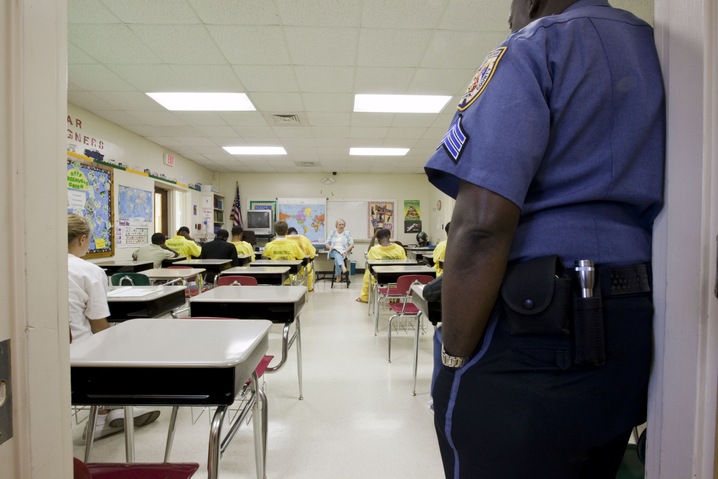In the five years before I came to Mary Baldwin as a full-time academic administrator, I served as the Principal of a regional juvenile detention center’s education program. Here are some things that might surprise you about teaching incarcerated and detained youth.
- Schools in Virginia’s juvenile detention facilities are public schools, governed directly by the Virginia Department of Education and funded by the General Assembly.
- Most students in juvenile detention are there less than 30 days; some are there as long as 6-12 months.
- Students may be detained for any pending criminal charge from truancy to capital murder, and everything in-between; teachers typically do not know each student’s reason for being there. The majority are there for probation violations.
- The teacher to student ratio is very favorable for differentiated instruction, remediation, acceleration, and classroom management; often there are eight or fewer students in a class at a time.
- Students always come to class fed, having slept well, sober, clean, dressed appropriately, and on time.
- Teachers have the support of detention staff security to assist and intervene in extreme behavioral events.
- Teachers are often permitted a free lunch (jail food can be yummy…maybe).
- Students in detention take SOL tests, when applicable. They are able to earn academic credit, including verified credit, toward graduation requirements.
- All special education laws and protections apply to students with disabilities.
- Teachers are employed through the local school division where the facility is located; teachers are typically on 11-month contracts and the pro-rated salary makes any vacancy very competitive for applicants.
- Teachers must be highly qualified for the subject matter that they teach; most have master’s degrees.
- The detention school program communicates regularly with the child’s school to make sure that the student is keeping on track in their studies.
All youth are entitled to an education, even those awaiting adjudication in a court of law. My five years in academic leadership of such a facility were extremely rewarding. Although teaching in this kind of an institution is not for everyone, I found that I enjoyed helping students feel renewed success toward their academic path.
By Dr. Rachel Potter, Dean of the College of Education
